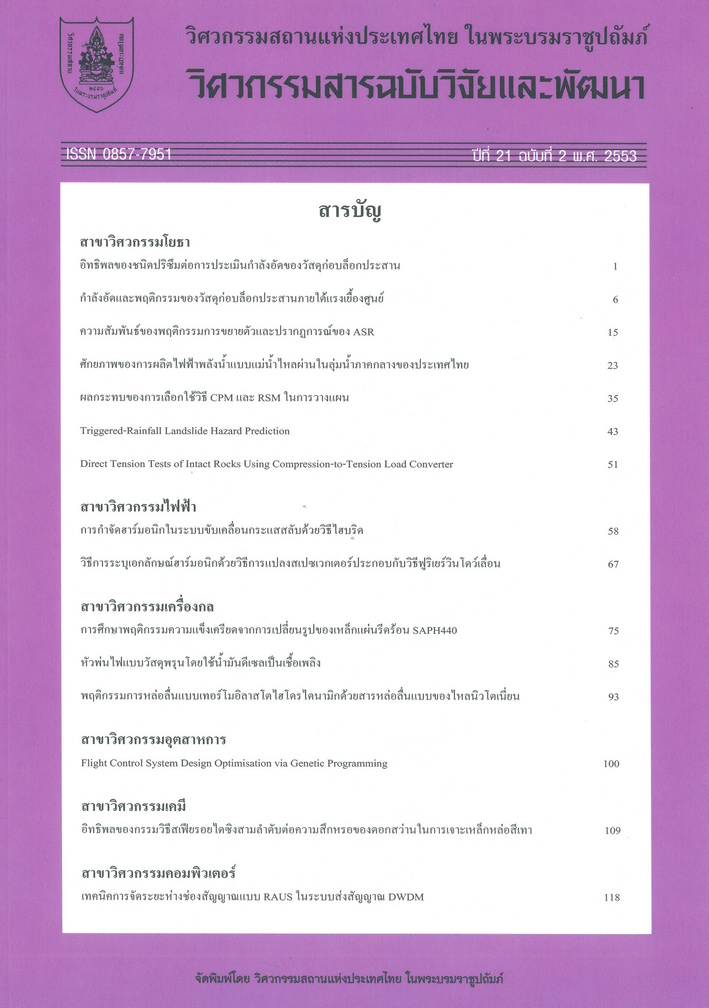Flight Control System Design Optimisation via Genetic Programming
Main Article Content
Abstract
More than 60 percent of fatal aircraft accidents are reported as being caused by human error. In addition, the current method of the design of autonomous control is very costly but not totally reliable; therefore, the new method to develop control laws should be approached in a new automated way. This paper presents design, optimisation and validation of control system for a fighter aircraft via a combination of Genetic Algorithm (GA) and Genetic Programming (GP). An altitude hold autopilot is constructed to cope with the disturbances in order to reduce pilot workload in altitude hold mode. Furthermore, the possibility of guiding the aircraft to a desired position and performing a banked turn has been investigated. Even though the developed control structure is substantially constrained, the result demonstrates that the control law is effective, reliable and robust as the aircraft can withstand severe vertical wind gust and error from inaccurate Global Positioning System (GPS) equipment in altitude hold mode. Also, the altitude response while the aircraft is guided to a designated point and is performing a banked turn is minimized. Thus, pilot work load could be potentially reduced and accidents caused by human factors could be minimized with the development of new methodology.
Article Details
The published articles are copyright of the Engineering Journal of Research and Development, The Engineering Institute of Thailand Under H.M. The King's Patronage (EIT).


